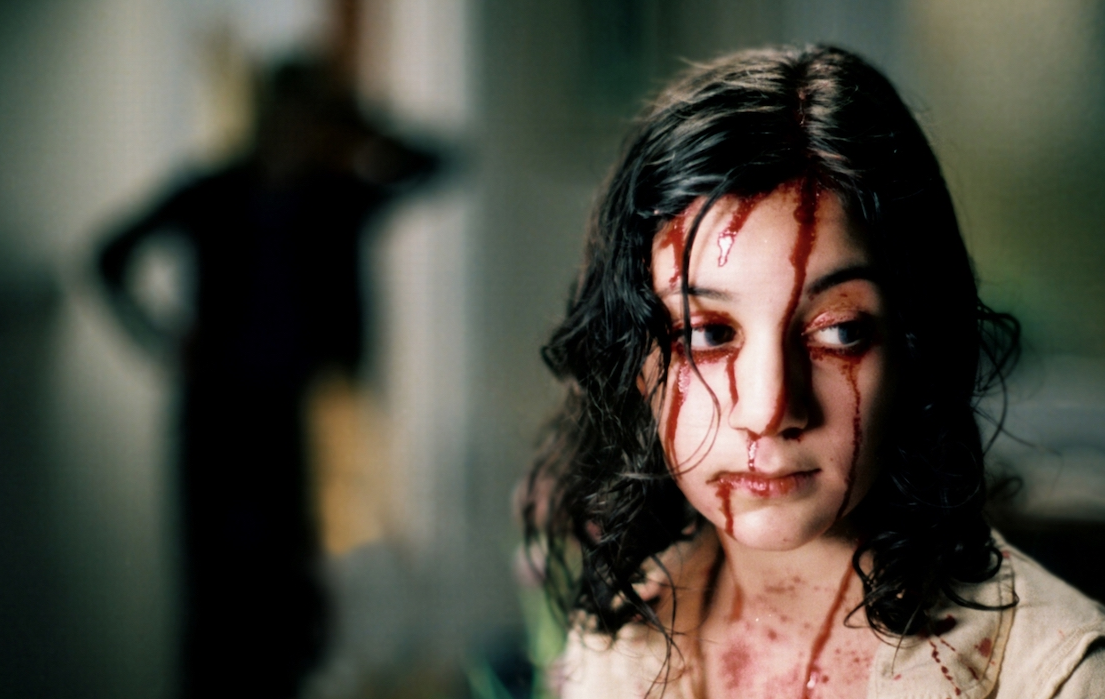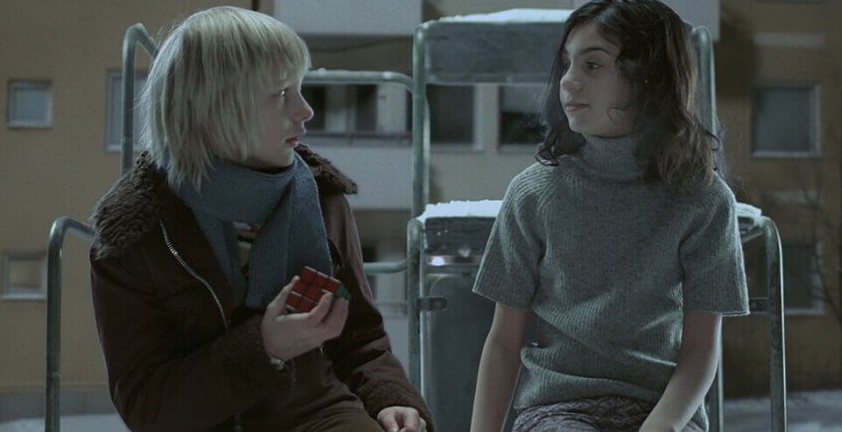From Childhood to Monsterhood in ‘Let the Right One In’ and ‘The Witch’
[This article was originally published on Outtake by Tribeca Shortlist on Oct 25, 2016]
Comedian Eddie Izzard has a brilliant monologue that poses the question, “Cake or death?” — a joke that hinges on how some choices are pretty obvious, or at least, a lot easier to swallow than their alternatives.

2008’s Let The Right One In, a gorgeously bleak film about the friendship (and blossoming romance) forged between a mortal boy and an adolescent vampire who presents as a girl (though that’s complicated), makes you ponder a strangely similar question inherent in the film’s premise. Much like “cake or death,” what if, on the cusp of adulthood, there was a choice to be made between a logical progression to adulthood, or a darker but more visceral and alive option, monsterhood?
The movie grabs at a horrifying aspect of adolescence that adults can only recognize in hindsight: that adolescence leads to adulthood, and that adulthood (at least when undertaken mindlessly) is its own hell. This movie awakens in us a darkly subversive wish that there had been another path leading away from the three-ring disappointments and heartbreaks of life in the grown-up circus.If the choice were fangs and their unfortunate affiliation with blood lust, or a life of soul-sucking jobs, failed relationships, and maybe alcoholism with which you can numb it all out… wouldn’t a lot of us have a good, hard ponder about the fangs?
Let The Right One In introduces us to a rather fragile adolescent boy named Oskar who is largely ignored by his parents, bullied at school, and desperately lonely for connection of some sort.Then an enigmatic new adolescent named Eli moves into Oskar’s apartment building. Eli is a vampire, and while Oskar won’t figure that out right away, he does sense a shared feeling of differentness and loneliness.

They also share another commonality — the lack of deep connection with the hapless adults who are meant to care for them.In lieu of parents, Eli is reliant upon her mortal adult caretaker, Hakan, to lure victims to their death and drain their blood for Eli to drink, so that Eli won’t have to risk exposure of her differentness, and face the consequences of the need to feed on humans.
Alas, Hakan, who has been fulfilling this role for a while, is losing his edge.Not unlike Oskar’s emotionally numbed out, newly separated parents, Hakan is clearly numbed out in a job he’s been doing for ages.(It just so happens to involve things like a bucket and a knife in lieu of a cubicle and staff meetings.)With dead-eyed adults all around them, and the barren landscape of a Swedish small town in the dead of winter as backdrop, it’s no wonder Eli and Oskar find comfort, companionship, and eventually an awkward romance, in each other.
A movie like this awakens in us a wish that there was an alternative to adulthood, and if monsterhood were it, maybe that’s the lesser of two evils.While the sense of invincibility and the infinite potential of youth is heady stuff, we know that most adults start off with that, but few retain it. Monsterhood is a more raw but also potentially lasting source of power for fueling the journey along an offbeat path. Monsterhood is rebellion with teeth–both literal and metaphorical. Without special powers, without fangs or black magic or something similar going for you, how else can you ward yourself against not only the banality of adulthood, but its larger horrors?The profound terror of isolation doesn’t stop at adolescence–it remains an ongoing consequence of rejecting and transgressing conformity at any age.
Where adulthood is about being a cog in the machine, monsterhood is about being the monkey wrench thrown into it.

More recently, Robert Egger’s The Witch echoed eerily similar themes.In it, we meet young Thomasin, whose family — due to her father’s apparent religious zealotry — has been exiled from the village that provided resources, community, conformity and comfort. Her parents’ religious fervor is something of a hard sell for Thomasin. From what she can see, her parents’ devotion to their God has not spared them from exile, resource scarcity, loss of community, and the staggering experience of losing a child. Spiraling downward into their own bitter unhappiness, mother and father soon find in Thomasin a convenient scapegoat for the consequences of theirlife choices; she’s eventually accused of witchcraft.She’s cast adrift in a literal and metaphorical wilderness where even her own family doesn’t much care for the woman she’s becoming.Under such circumstances, would a pact with the devil look so bad in comparison?
Risking rejection from family or a larger community, facing potential isolation — for those on the path to monsterhood, this is way to find kindred souls, their tribe, through being nakedly, even selfishly, themselves.This is a point made very clearly in The Witch’s shocking climax, and in Let The Right One In, Oskar and Eli have found each other and a fragile refuge in their shared monstrosity.In both movies, channeling one’s inner monster becomes a survival mechanism for the soul, a way to reject the rules of adulthood and society that these young characters had no hand in creating in the first place.
While the title Let The Right One In alludes to the tradition of having to invite a vampire into your home — that he or she cannot enter without your permission — there’s a parallel here with the soul-defining choices that we make as humans.Which values and beliefs do we “let” into our selves and guide our lives by?Individualism versus community; fear versus courage, love versus hate; self-acceptance versus needing the approval of others?Existential horror lies in sacrificing yourself for the sake of conformity and acceptance by others while neglecting what your own soul craves.Embracing monsterhood, and seeking your true tribe (however weird, difficult to find, or rare), is the more radical choice — a path, however dimly lit, to liberation and freedom.
Watch Let the Right One In now through Oct. 31 on Tribeca Shortlist.
